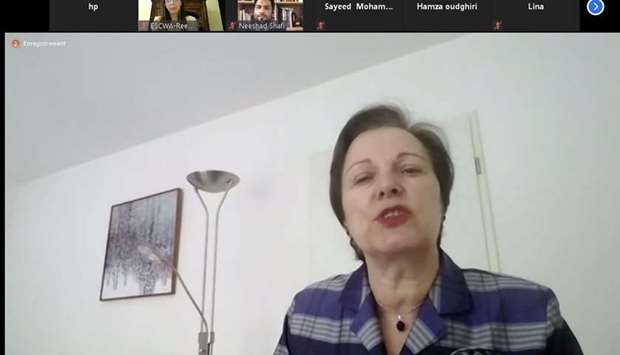The current coronavirus crisis has created grave uncertainties across the world. In response, most governments have introduced unprecedented measures to curb the spread of the virus and mitigate the economic fallout.
One major question is that if the devastating impact of the coronavirus pandemic will destroy the momentum that climate movement has built over the years. Climate activists ask if the economic fallout will push climate down the list of priorities for governments, and the postponement of the UN Climate Summit COP26 in Glasgow in United Kingdom will diminish the united ability to address climate emergency.
The parallel drawn between Covid-19 and climate change offers several key lessons that can be drawn for help in the fight against climate change. The opportunities are clear, well-studied, and well-documented. Reduced emission, clean air and water do not only result from loss and disruption; they can be planned, designed, invested and implemented in the form of strategies that can reduce the emissions that do not cause suffering.
As part of the Earth Day 2020, the Arab Youth Climate Movement (AYCM) Qatar recently arranged a focused webinar – Covid-19 and Climate Action - Global to Arab Regional Perspective – and question and answer session featuring a global panel of experts from the United Nations Framework Convention on Climate Change (UNFCCC) and Economic and Social Commission for Western Asia (UNESCWA) who shared insights on Covid-19 pandemic, climate action and Sustainable Development Goals (SDGs) from global perspective and Arab regional perspective and what it means for the ability to address the climate emergency for a more sustainable future.
Reem Nejdawi, chief of Food and Environment, Climate Change & Natural Resources Sustainability, UNESCOWA, and Katia Simeonova, Manager of Transparency & SBI Co-ordinator UN Climate Change Secretariat UNFCCC, as the panellists addressed the webinar and responded to the questions as participants took keen interest in the discussion.
Katia spoke about UNFCCC’s extensive work ahead of the canceled COP26 this year. She spoke about direct impacts of Covid-19 on the climate action momentum globally. The UN expert also explained the outcome of the 11th Petersburg Climate Dialogue (PCD), which was held as a video conference on 27 and 28 April. The United Kingdom, as president of the next Climate Change Conference (COP 26), will co-chair this year’s PCD.
Reem spoke about impact of Covid-19 with regard to achieving the Sustainable Development Goals in the Arab world. She explained environmental impact in the Arab region and the post Covid-19 Arab World.
Reem said: “A decade marked for accelerated action and delivery towards sustainable development has been disrupted by a global health threat that has severely impacted the Arab region.” She explained the outcome of ESCWA report saying an additional 8.3 million people will fall into poverty in the Arab region. She also highlighted that there would be an increased poverty that could raise the number of undernourished people by some 2million.
Both the speakers spoke about the lessons from the health crisis that will help mitigating the climate emergency by not bailing out countries, industries or financial institutions – it is about saving thousands of lives and keeping environment in the core of the recovery plan.
The speakers expressed their support for AYCMQ and appreciated the movements for organzing such a relevant event for the Arab region on Covid-19 and climate change as well as praised their works on leading Arab youth for climate action. Both speakers hoped to work ahead with AYCM Qatar in the coming days.
Neeshad Shafi, Founder & Executive Director of AYCMQ, moderated the webinar. AYMQ is a first registered, nonprofit, youth-led, grassroots environmental association in Qatar. The movement seeks to create a transformative change in the community by developing holistic environmental learning programmes, engaging in community activities and supporting evidence-based policy research.

Katia Simeonova, Manager of Transparency & SBI Co-ordinator UN Climate Change Secretariat UNFCCC.
